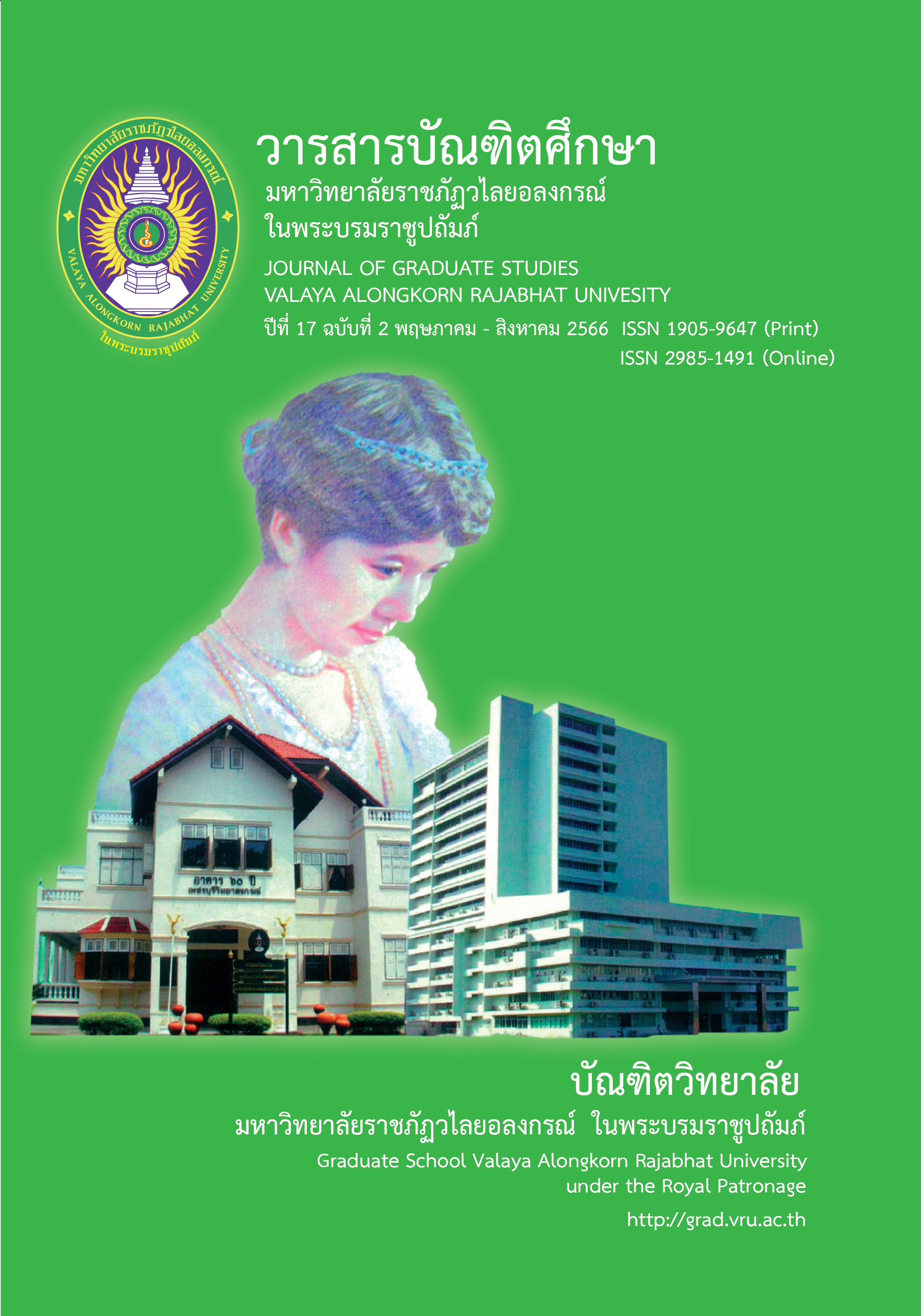DEVELOPING YOUNG FARMERS TO TAKE ON THE ROLE OF COMMUNITY LEADERS IN THE UPPER NORTHERN REGION: A CASE STUDY OF RETURN HOMELAND VOLUNTEER PROJECT
Main Article Content
Abstract
The objectives of this study were 1) to study the process of developing the potential of the young farmers to take on the role of community leaders in the upper northern region and 2) to study the success factors of the young farmers to be community leaders in the upper northern region in a case study of the return homeland volunteer project. The qualitative research was to study the case study of the sample group, who provided the important information consisted of 1) young farmers who were the leaders of the community 20 persons, (formal leaders ten persons, and informal leaders ten persons); 2) young farmers' families 20 persons; 3) people in community 20 persons and 4) project staff three persons. There was a total of 63 participated in this research. The researcher took purposive sampling as a method of sampling. The instruments were participant observation, focus group discussion, and in-depth interview. The obtained data were analyzed by using content analysis. The validity of the data was examined by using the triangulation method.
The results of the study revealed that 1) the process of developing the potential of the young farmers to be leaders of the community, consists of 1.1) the selection of young farmers or young generations who are interested in returning to homeland; 1.2) promoting and supporting learning factors; 1.3) providing a principle of idea on the role of homeland volunteer; 1.4) creating a young generation of people in the community area and 1.5) creating important perspectives in understanding organic agriculture. 2) To study the success factors of the young farmers to be community leaders in the upper northern region, consists of 2.1) the leadership characteristics of young farmers; 2.2) a high concept or paradigm for community development; 2.3) creating the group and developing young farmers in community; 2.4) participating operations with outside agencies in the community; 2.5) creating a collaborative learning process and communication in the community; 2.6) the Operations focused on organic agriculture and maintained natural resources in the community and 2.7) getting support from family to work in the community.
Article Details

This work is licensed under a Creative Commons Attribution-NonCommercial-NoDerivatives 4.0 International License.
บทความทุกเรื่องได้รับการตรวจความถูกต้องทางวิชาการโดยผู้ทรงคุณวุฒิ ทรรศนะและข้อคิดเห็นในบทความ Journal of Global of Perspectives in Humanities and Social Sciences (J-GPHSS) มิใช่เป็นทรรศนะและความคิดของผู้จัดทำจึงมิใช่ความรับผิดชอบของบัณฑิตวิทยาลัย มหาวิทยาลัยราชภัฏวไลยอลงกรณ์ ในพระบรมราชูปถัมภ์ กองบรรณาธิการไม่สงวนสิทธิ์การคัดลอก แต่ให้อ้างอิงแหล่งที่มา
References
Chan-aon, N. (2017). khwāmmankhong thāng ʻāhān khō̜ng prathēt Thai [Thailand Food Security]. The Secretariat of the Senate. 4(2), 1-6.
Chantavanich, S. (2013). withīkān wičhai chœ̄ng khunnaphāp [Qualitative Research]. Bangkok: Chulalongkorn University Printing House.
Jina, P., et al. (2016). rūpbǣp chīwit withīthāng lư̄ak læ kān phưng tonʻēng phư̄a khwāmyangyư̄n khō̜ng kasēttrakō̜n run mai nai čhangwat Lamphūn [Alternative lifestyle and self-sufficiency for sustainability of the new generation of farmers in Lamphun Province]. Bangkok. Thailand Science Research and Innovation.
Khammungkhun, S. (2019). kānsāng læ phatthanā kasēttrakō̜n run mai [Young farmer development]. Retrieved from https://www.pier.or.th/ abridged/2019/13/
Pechmak, P. (Ed.). (2016). kān songsœ̄m kānphatthanā rabop sētthakit thānrāk [Local Economy System]. Bangkok: Community Organizations Development Institute.
Phukowluan, S. (2014). kānbō̜rihān čhatkān sapphayākō̜n manut samrap phūčhatkān nai sāi ngān nai thotsawat nā [Human Resource Management in the 21st Century]. Bangkok: Chulalongkorn University Printing House.
Puey Ungphakorn Institute for Economic Research. (2019). sathānakān sūng wai kap phalit phāp læ kāntham kasēt khō̜ng khrūarư̄an kasēt Thai [The situation of aging and the productivity and agriculture of Thai agricultural households]. Retrieved from https://www.pier.or.th/abridged/2019/13/
Sawangjit, W. (2020). kānphatthanā samatthana kasēttrakō̜n sū kān pen phū nam kasēttrakō̜n run mai [The Farmer Competency Development Towards New Generation of Farmers]. Journal of Agri. Research & Extension. 38(1), 126-134.
School of Administrative Studies. (2017). phū nam khon run mai : khunkhā hǣng withī kasēt ʻinsī læ phalang klum khon run mai sū kān plīanplǣng chumchon bān kœ̄t [New generation leader :Value of organic farming and the power of the new generation to change the hometown community]. Chiang Mai, Wanida Karnpim.
Sommanasak, W. (2020). kān sœ̄msāng læ phatthanā kasēttrakō̜n run mai : khwām thāthāi nai patčhuban - ʻanākhot [Enhancement and Development of A new generation of Innovative Young farmers: Current and Future Challenges]. Journal of Public Administration. 4(1), 53 - 67.
Swengam, W. (2019). chumchon hǣng kān patibat [Communities of Practice: CoP]. Bangkok: Faculty of Education, Chulalongkorn University.
Thai Volunteer Service. (2019). phalang khon run mai khapkhlư̄an sangkhom [Young Moves]. Bangkok. Parbpim.


